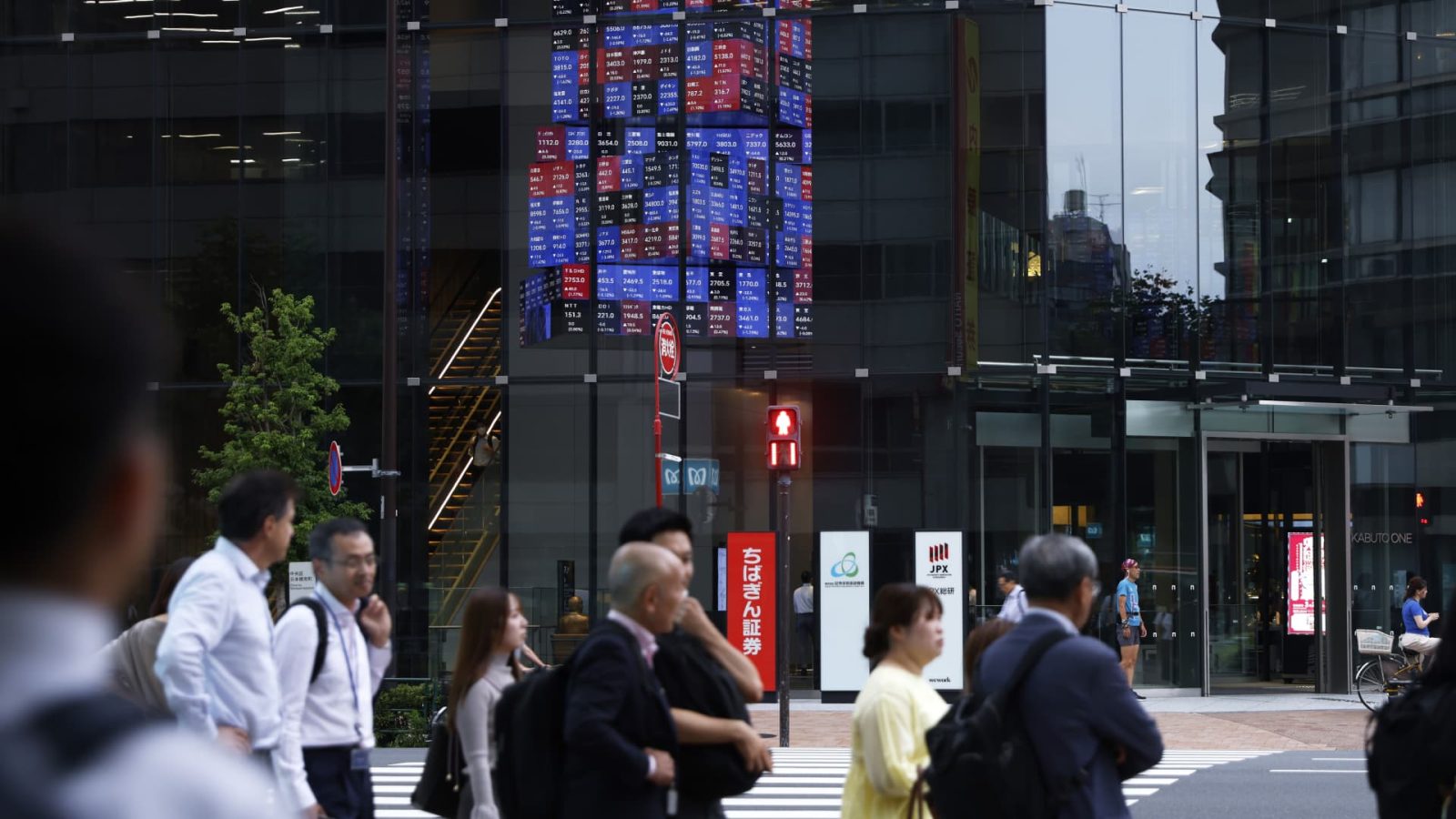Japan’s benchmark indexes nosedived as much as 5% on Friday, with most Asia-Pacific markets lower after a sell-off on Wall Street overnight over recession worries.
The Nikkei extended its 2.62% slide on Thursday to lead losses in the region and reach its lowest level since February.
Both the Nikkei and Topix pared losses later in the session and were last trading at 4.56% and 4.47%, respectively.
Some heavyweight stocks that fell include Softbank Group, which tumbled over 5%, while trading houses Mitsui and Marubeni saw losses of over 8% and 6%, respectively. Semiconductor firm Tokyo Electron was down over 9%.
Japanese government bond yields fell, with the yield on the benchmark 10-year JGB falling below the 1% mark and hitting its lowest level since June 20.
South Korea’s Kospi tumbled 3.19%, dragged mostly by banking stocks, while the small-cap Kosdaq plunged 3.46%.
However, K-pop stocks were a bright spot for the market. Shares of all four listed K-pop companies defied the broader sell-off to climb on Friday, led by Hybe after the firm announced its new business strategy on Thursday after market hours.
Australia’s S&P/ASX 200 was down 2.14%, retreating from its all-time high on Thursday.
Hong Kong’s Hang Seng index was 2% lower, while mainland China’s CSI 300 saw the smallest loss in Asia, down 0.66%
Separately, South Korea’s inflation numbers for July came in slightly higher than expected, with the country’s consumer price index climbing 2.6% year on year, compared to the 2.5% expected by economists polled by Reuters.
The gloomy sentiment in Asia markets comes after a sell-off on Wall Street in Thursday’s trading session, which saw all three major U.S. indexes plunge on recession fears.
The Dow Jones Industrial Average dropped 1.21%, while the S&P 500 shed 1.37% and the tech heavy Nasdaq Composite slipped 2.3%.
The Russell 2000 index, the small-cap benchmark that has rallied lately, dropped 3%.
In the U.S., fresh data stoked fears over a possible recession and apprehensions that the Federal Reserve could be too late in cutting interest rates.
Initial jobless claims rose the most since August 2023. The ISM manufacturing index, a barometer of factory activity in the U.S., came in at 46.8%, worse than expected and signaling economic contraction.
After these data, the 10-year Treasury yield dropped below 4% for the first time since February.
—CNBC’s Pia Singh and Samantha Subin contributed to this report.
Read the full article here











Leave a Reply